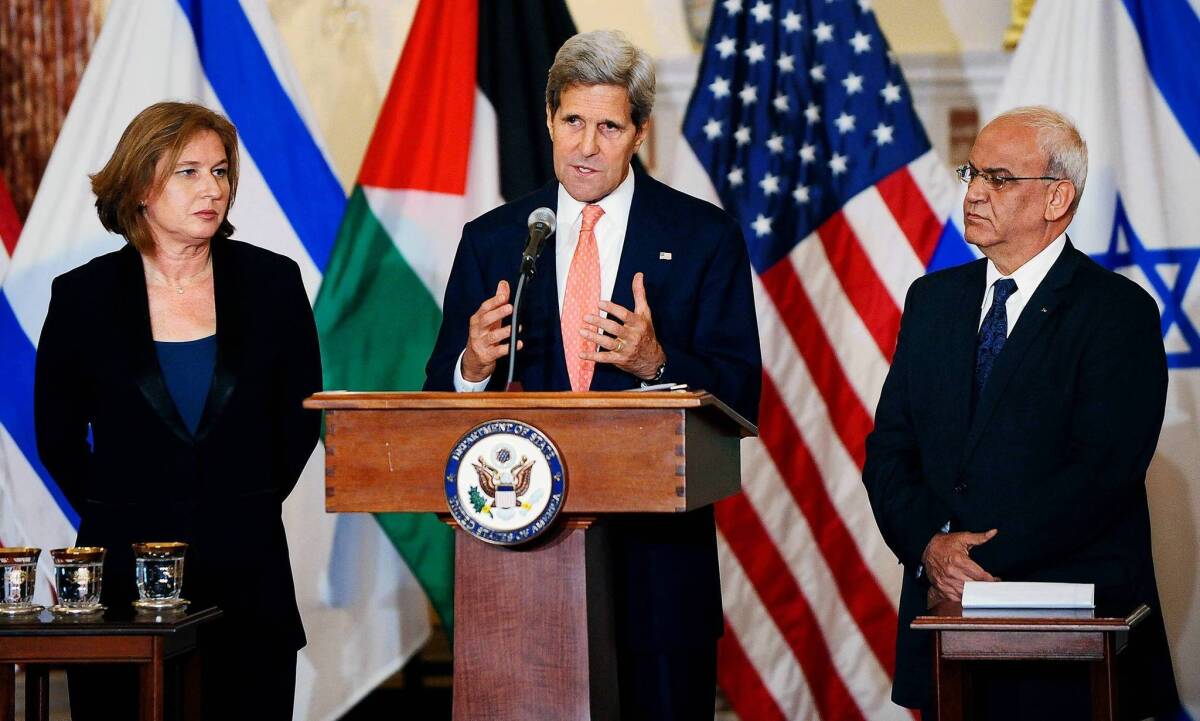Letters: Negotiating Mideast peace

- Share via
Re “Israelis and Palestinians to confront tough issues,” July 31
It is disappointing that the United States continues to show unconditional support for Israel even when our ally violates international law and ignores U.N. resolutions condemning its behavior. From 1972 to 2011, the United States has issued the only vetoes to 42 U.N. Security Council resolutions condemning Israel’s behavior, most of which were related to the occupied territories.
These negotiations would be unnecessary if Israel would respect U.N. resolutions and the International Court of Justice concerning settlements, borders, the right of return, the separation barrier with much of the West Bank and the status of Jerusalem. All of these issues have been debated at length in these respected forums, and Israel would be required to relinquish all territory acquired by war and grant the right of return to the Palestinians who were forced or who fled from their homes in 1947 and 1967.
It is not surprising that Israel demands that these critical issues be resolved by negotiations instead of by international law, or else the ultra-nationalists in the Israeli government could not realize their dream of their country stretching from the Jordan River to the Mediterranean.
Joseph Tillotson
Redondo Beach
There will be no peace agreement between Israel and the Palestinians, but not because of Israeli settlements and not because the Gaza Strip is ruled by Hamas. Rather, it is because the Palestinians reject a two-state solution.
Consider the historical evidence. Israel repeatedly offered the Palestinians land for peace, only to be turned down. In 2009, Israel froze settlement construction for 10 months, but the Palestinians refused to return to the bargaining table.
The tactic is simple: Make outrageous demands that no reasonable person would accept, and when the demands are rejected, accuse the other side of obstruction.
I hope to be proved wrong this time.
Bruce Friedman
Los Angeles
ALSO:
Letters: The Zimmerman case and the law
Letters: The Fed’s Yellen-Summers horse race
Letters: Two weeks of therapy for Filner won’t do it
More to Read
A cure for the common opinion
Get thought-provoking perspectives with our weekly newsletter.
You may occasionally receive promotional content from the Los Angeles Times.






